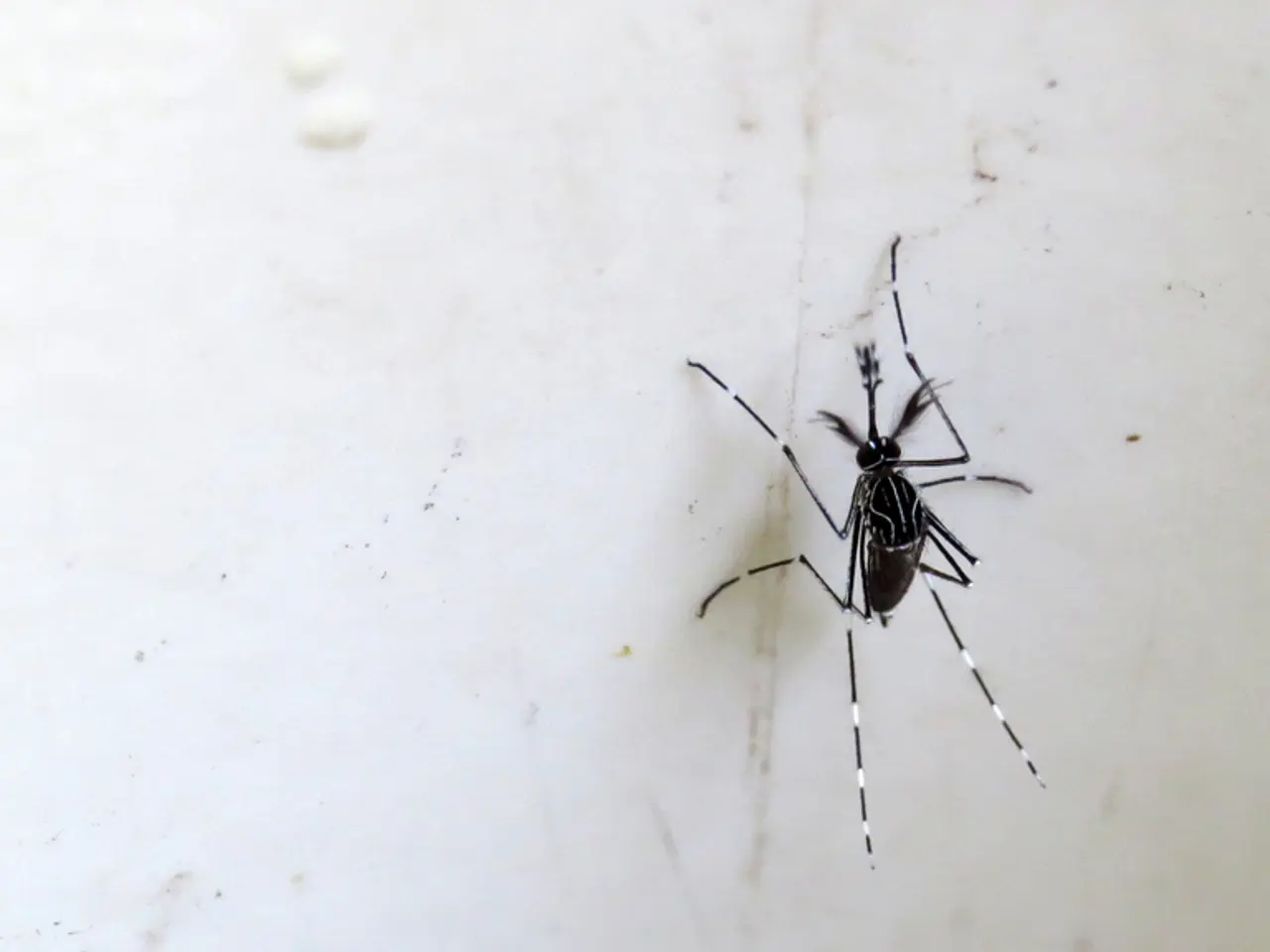Strategies for Dengue Prevention Through Mosquito Control: Efficient Approaches
Dishing on Dengue: practical, eco-friendly mosquito control strategies
Dengue fever - a bummer of a viral disease
Dengue fever is no laughing matter, posing a worldwide health crisis. Annually, millions grapple with this potentially dangerous illness that can bring on horrendous symptoms such as sky-high fever, skin rashes, and body aches. Drastically reducing dengue fever transmission starts right at home - with kickass mosquito control strategies. In this blog, we'll delve into sustainable solutions to keep those pesky mosquitoes at bay and safeguard your health.
Mosquito Manifesto - a call to action
Proper mosquito control requires effective population reduction and halting virus transmission through a mix of environmentally sound solutions. The World Health Organization (WHO) champions an innovative approach called Integrated Vector Management (IVM). Here's the scoop:
- Community engagement: mobilizing people for control efforts, empowerment, regulation, and awareness.
- Cross-sector cooperation: collaboration between health and other sectors for planning, resources, monitoring, and decision-making.
- Combining methods: utilizing both chemical (e.g., insecticides) and natural approaches (e.g., habitat management).
- Data-driven interventions: relying on operational research, entomological, and epidemiological surveillance to tailor solutions to your area.
- Training and education: building capacity to improve local and national mosquito control capacities [1].
Game-changer tactics to nix mosquito breeding sites
- Eliminating breeding grounds: trashing water containers, birdbaths, and flower vases helps eliminate mosquito breeding spots [3][5].
- Larvicides: employing eco-friendly biological larvicides like mosquito dunks containing bacteria (e.g., Bacillus thuringiensis israelensis) prevents larvae from developing in open water features [3].
Green and natural defense
Plant allies:- citronella- chrysanthemums- rosemary- other herbs with mosquito-repellent properties can naturally ward off nuisance mosquitoes [5].
Eco-friendly practices:- garden tidiness: clearing debris, avoiding overwatering, and using fountains for moving water [5].
Natural products to the rescue
Essential oils like citronella, as well as natural repellents, can be used as complementary tools in your mosquito control arsenal while reducing reliance on synthetic options [2][4].
Personal protection for outdoor fun
Incorporate permethrin-based insect repellents on clothing and gear for added protection against mosquito bites during outdoor activities, reinforcing community-wide control measures [3].
By melding these strategies into an IVM framework, you'll achieve super-effective, sustainable mosquito control for decreasing dengue fever transmission rates. This multi-tactic approach optimizes resources, enhances public health benefits, and minimizes negative impacts to ecosystems [1][3][5].
- Adopting a holistic health-and-wellness approach, combatting dengue fever extends beyond mosquito control, requiring attention to one's overall medical-conditions, including chronic-diseases like diabetes, which reduces resistance to the virus.
- SKin-care is essential for individuals at risk of dengue, as mosquito bites can intensify existing skin-conditions and boost the chances of secondary infections.
- Mental-health plays a significant role in dealing with dengue; maintaining emotional wellness during recovery can help alleviate stress and prompt a quicker healing process.
- Engaging in fitness-and-exercise regularly fortifies the cardiovascular-health, boosting the body's capacity to combat and recover from dengue-related complications.
- As dengue can affect respiratory-conditions, it's crucial for individuals with asthma or other such ailments to pay extra attention to their diges-tive-health too, as malabsorption of nutrients can impair the immune system.
- Embracing a balanced diet rich in essential vitamins, minerals, and antioxidants is crucial for bolstering immune function in the fight against dengue fever.
- Apart from cardiovascular-health and nutrition, boosting eye-health through proper nutrition and ensuring ample hydration is essential in bolstering the body's defenses against dengue.
- Hearing impairment, although not directly related to dengue, can complicate symptom diagnosis and early treatment, emphasizing the importance of maintaining optimal health across all bodily systems.
- Autoimmune-disorders and neurological-disorders may increase an individual's vulnerability to dengue; regular health check-ups and adherence to treatments for these conditions are vital in minimizing the risk of dengue-related complications.
- The advent of CBD-derived therapies and treatments is creating a promising horizon for individuals battling a range of health-related issues, including neuroinflammation, anxiety, and pain management – all which could play a role in dengue recovery.
- Beyond mosquito control strategies, practicing mindfulness and stress-management techniques can foster overall wellness; benefits include strengthening the body's ability to resist infections, aiding in recovery, and bolstering mental fortitude during challenging times.






